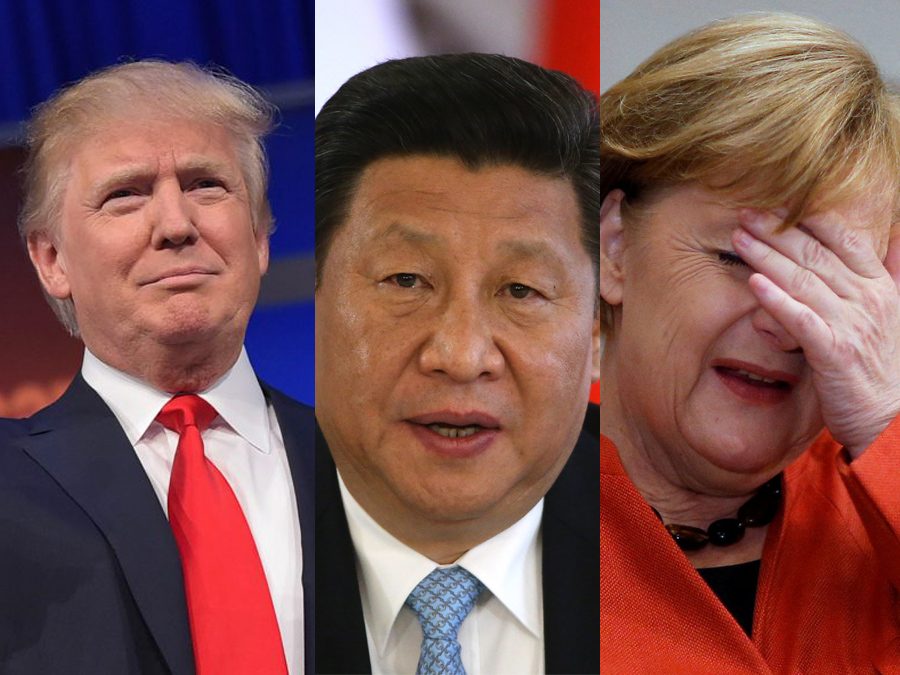As German Chancellor Angela Merkel is making last efforts to sign China-EU trade and investment deal by the set deadline of the end of this year, the United States is doing all in its capacity to delay the deal. Trump administration knows that Merkel is there on the chair only by summer 2021 and she is the last hope for the communist country to sign the trade and investment treaty.
Once she is out of power, no leader in the European Union could bring together all the players on the board and sign the deal, because most of them don’t want to sign the deal.
So, United States has warned China that they are watching the deal closely, and if Beijing makes any concessions to go ahead with the deal within Merkel’s tenure, US is going to seek the same concessions in future US-China trade negotiations.
“If the US sees China making serious reform concessions to the EU, it might smell blood in the water and push even harder on reaching an agreement with Beijing,” said Eurasia Group’s China analyst Kelsey Broderick. “It would likely incentivise US actors to push China hard on phase two [trade deal] commitments.”
It is a sure-shot technique to delay the deal because none of the European countries except Germany is ready to go ahead with the deal if China does not makes concessions or implement reforms to end the subsidy to state-owned enterprises. Therefore, if the United States forces China to not give any concessions to European Union, the deal would not be signed in the near term, and once Merkel’s tenure is over, the deal is dead anyway.
If the EU-China investment deal is signed, the United States would be at the losing end. Its companies would lose two of the biggest markets in the world, which is the European Union and China because both blocks would give advantage to each other’s companies instead of American ones.
Moreover, China is trying to send a message to the global community that its acceptance among the democratic and developed world remains strong, despite America’s repeated call to all democratic countries to unite against CCP. Also, European companies would get access to the largest market in the Purchasing Power and with this, Germany, that is hell-bent to go-ahead with the deal, would benefit most. German companies like Volkswagen and BASF are the ones that want this deal desperately to capture the Chinese market.
European business has already opined that the deal is quite unlikely to be signed this year. “The fact that both parties didn’t feel like reporting what has been agreed upon is an indicator that there was very little to agree upon,” said Joerg Wuttke, president of the European Union Chamber of Commerce in a press conference in China.
“I don’t see any conclusion this year,” he added.
According to experts, China is not ready to give up to EU’s pressure to cut down subsidies to state-owned enterprise- through which it reduces the chances of fair competition for foreign companies in its domestic markets- because if they offer it to Brussels, Washington would ask for the same.
“It is for that reason – i.e., China would be providing benefits to the United States in a deal it agrees with the EU – that it is unlikely to have much, in terms of substantive reforms, involved,” Chad Bown, a trade economist at the Peterson Institute for International Economics (PIIE).
The US wants to delay the EU-China investment deal till Merkel’s tenure by hook or by crook because she is the last hope for Xi Jinping to capture the European market.
One European leader who has always stood for close ties with China is Merkel. In her long tenure of one and a half-decade, Merkel has visited China 12 times- more than any other prominent global leader in the world. Right from the beginning of her tenure in 2005, Merkel advocated for closer ties with China.
China is Germany’s biggest trade partner with the trade volume hitting a new high of 233 billion US dollars in 2019, and Merkel wants to the take trade relations to next level, as German companies like Volkswagen and BASF are expected to benefit most from a free trade deal between China and Europe. So, Merkel and China both want the deal, but if the US can delay it till summer 2021, the deal would be put in a cold bag for altogether.
